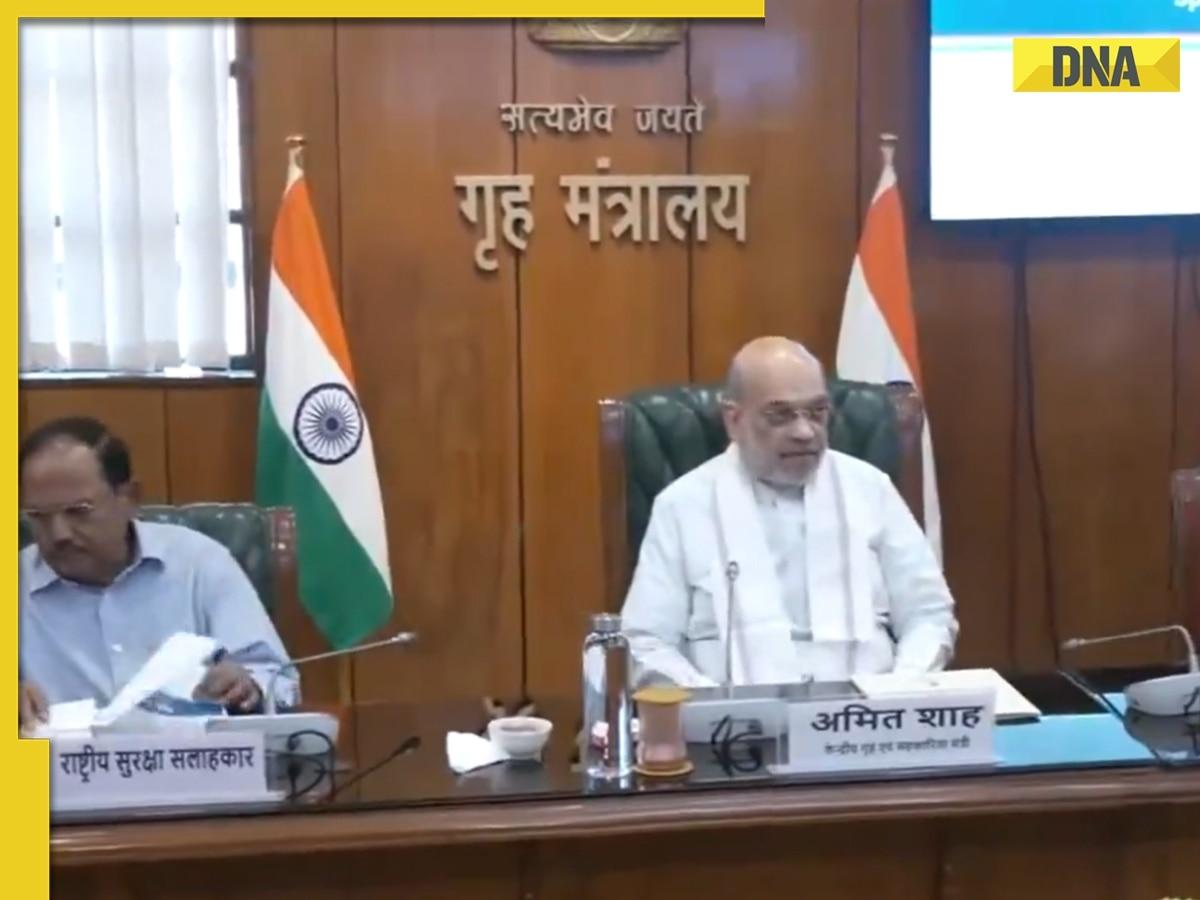
In a decisive move aimed at bolstering security in the Jammu division, Union Home Minister Amit Shah has directed security agencies to implement area domination and zero-terror plans akin to the strategies that have proven successful in the Kashmir Valley. This initiative is part of the Narendra Modi government’s commitment to eradicating terrorism in Jammu and Kashmir through innovative and stringent measures.
At a high-level meeting convened to assess the security situation following recent terrorist attacks in the Union Territory, Shah underlined the necessity of replicating the efficacious security strategies from Kashmir in Jammu. The sources privy to the discussions informed that the home minister emphasized the deployment of similar area domination tactics and zero-tolerance towards terrorism, aiming for comprehensive results.
The significance of this meeting is further underscored as it closely followed the tragic terrorist attack on a bus carrying pilgrims in Reasi district, Jammu. In response to such events, the Modi administration, under the directive of the prime minister, has reiterated its stance on utilizing the full spectrum of counter-terror capabilities. This includes intensified operations and strategic measures to nip terror activities in the bud, ensuring the safety and security of citizens and pilgrims alike.
The high-level meeting, held at the North Block, saw the congregation of top security officials including National Security Adviser Ajit Doval, Jammu and Kashmir Lieutenant Governor Manoj Sinha, Army Chief General Manoj Pande, the Army Chief-designate Lieutenant General Upendra Dwivedi, Union Home Secretary Ajay Bhalla, Director of Intelligence Bureau Tapan Deka, CRPF Director General Anish Dayal Singh, BSF Director General Nitin Agarwal, and Jammu and Kashmir Director General of Police R R Swain, among others. Each of these officials presented detailed insights on the prevailing security landscape and contributed to formulating the upcoming counter-terrorism operations.
As part of the comprehensive security review, Shah also scrutinized the preparedness for the forthcoming Amarnath Yatra, scheduled to commence on June 29. An essential religious pilgrimage, the Amarnath Yatra attracts thousands of devotees annually, necessitating meticulous security planning. The home minister was briefed on the multi-layered security measures in place to ensure the safety of the pilgrims. These plans include enhanced surveillance, fortified checkpoints, and rapid response teams poised to mitigate any possible threats.
In line with the government’s unwavering resolve to crack down on terrorism, security forces are expected to escalate their counter-terrorism operations in the Jammu region, mirroring their successful endeavours in Kashmir.
. The Modi administration’s strategic approach underscores the use of advanced technology, intelligence-based operations, and collaborative efforts among various security agencies to maintain law and order.
The directive to implement area domination and zero-terror plans in Jammu marks a pivotal shift in addressing the region’s unique security challenges. Historically, the Kashmir Valley has been the focal point of intensive security operations, but recent events have necessitated a recalibrated focus on Jammu. By adopting a similarly rigorous security blueprint, the government aims to ensure that the entire Union Territory is safeguarded against terrorist threats.
The sources further elaborated that the home minister’s briefing highlighted the necessity for constant vigilance and the proactive dismantling of terror networks. This involves, but is not limited to, heightened border security, preemptive strikes on identified terrorist hideouts, and robust intelligence sharing. These actions are part of a broader strategy to create a secure environment conducive to development and peace.
Furthermore, the meeting underscored the importance of community engagement and the role of local populace in assisting security agencies. Encouraging residents to remain vigilant and report suspicious activities is seen as crucial in building a resilient security ecosystem.
As Jammu gears up to implement these stringent security measures, the Modi government’s approach reiterates its commitment to not only combat terrorism but also establish a sense of stability and normalcy in the region. The home minister’s directives signal a proactive and hands-on approach, aimed at addressing and mitigating security threats through concerted efforts and strategic planning.
In summary, Amit Shah’s directives to replicate Kashmir’s zero-terror and area domination plans in Jammu signify a robust and intensified approach towards ensuring security and thwarting terrorist activities. The comprehensive review of the security framework and the meticulous planning of the Amarnath Yatra underscore the government’s commitment to preserving tranquility and safety in the Union Territory of Jammu and Kashmir.












